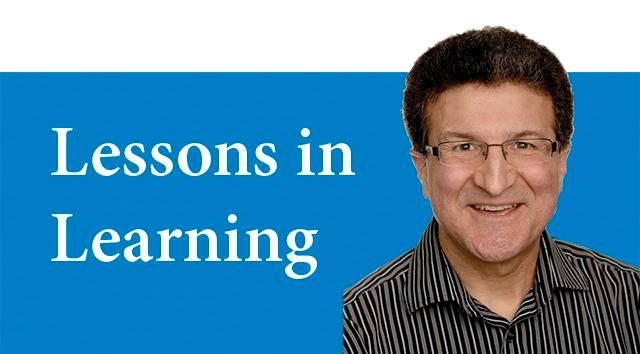Often times, when we make concessions for others, we end up creating great moments for ourselves.
As a teacher, I am always open to expanding and improving my program. For years now I have studied the Holocaust as part of my Social Justice 12 course.
I faced a situation this year where I had to give my students more choice in studying this topic. It resulted in me working with a group of young people and rediscovering one of most amazing books I have ever read.
Man's Search for Meaning, by Viktor Frankl, is a deep and profound book that is not typically read by high school students. I decided to allow my students to choose it if they were curious and felt up to the challenge. Those who picked this book embarked on a great voyage.
First of all, I could not withhold my own enthusiasm for the book. As teachers, we are not immune to our own biases, both positive and negative. In this case, my viewpoint seemed to have a positive influence on my students.
Secondly, I told my students that I did not expect them to understand the deeper concepts of the book on their first reading. In all honesty, I have read the book many times and each time I understand things that I did not previously notice.
For example, Frankl tells us that the last and greatest human freedom is the freedom to choose our own thoughts, to choose how we will respond to any given situation. In my late teens and early 20s, I took this to mean that those in difficult situations could still be free, even those who lived under oppressive dictators. While this is true, I have to admit that my viewpoint was somewhat arrogant and judgmental.
The more profound meaning is, of course, that as we face challenging and difficult situations ourselves, we can make a paradigm shift. We can stand back and look at the situation. Instead of simply reacting, we can choose the response that gives us the greatest peace.
The reason why I did not understand what Frankl meant when I was younger was because I did not have the life experience to relate to it. Life had been good to me. The challenges I had faced to that point were fairly mundane.
What I discovered from my students, however, was that a number of them could relate to what Frankl was saying. They had faced, or were facing, profound challenges in life.
Though none of us have any idea of what it is like to suffer from the cold, starvation, indignity and fear of a concentration camp, we can relate to suffering from mistreatment on many levels. We realize that if Frankl and other prisoners had chosen not to embrace the lies that were screamed at them in the camps, if they had chosen not to become animals though they were being treated worse than animals, we too can choose to believe in ourselves and in our future.
We too can choose to love.
We too can choose to embrace our inner greatness.
There is a reason why this book has been so influential, why it has been translated into 24 languages and has sold more than 10 million copies.
Some of my students will need to read Man's Search for Meaning a number of times, as I have. Others who did not choose to read it this year will pick it up later in life. Some will find it on audiobook, others will find commentaries based on Frankl's teachings.
Facing challenges and searching for meaning are part of life's journey for all of us.
Not only did I give my students a resource for their journey, I re-discovered the most valuable lessons myself.



